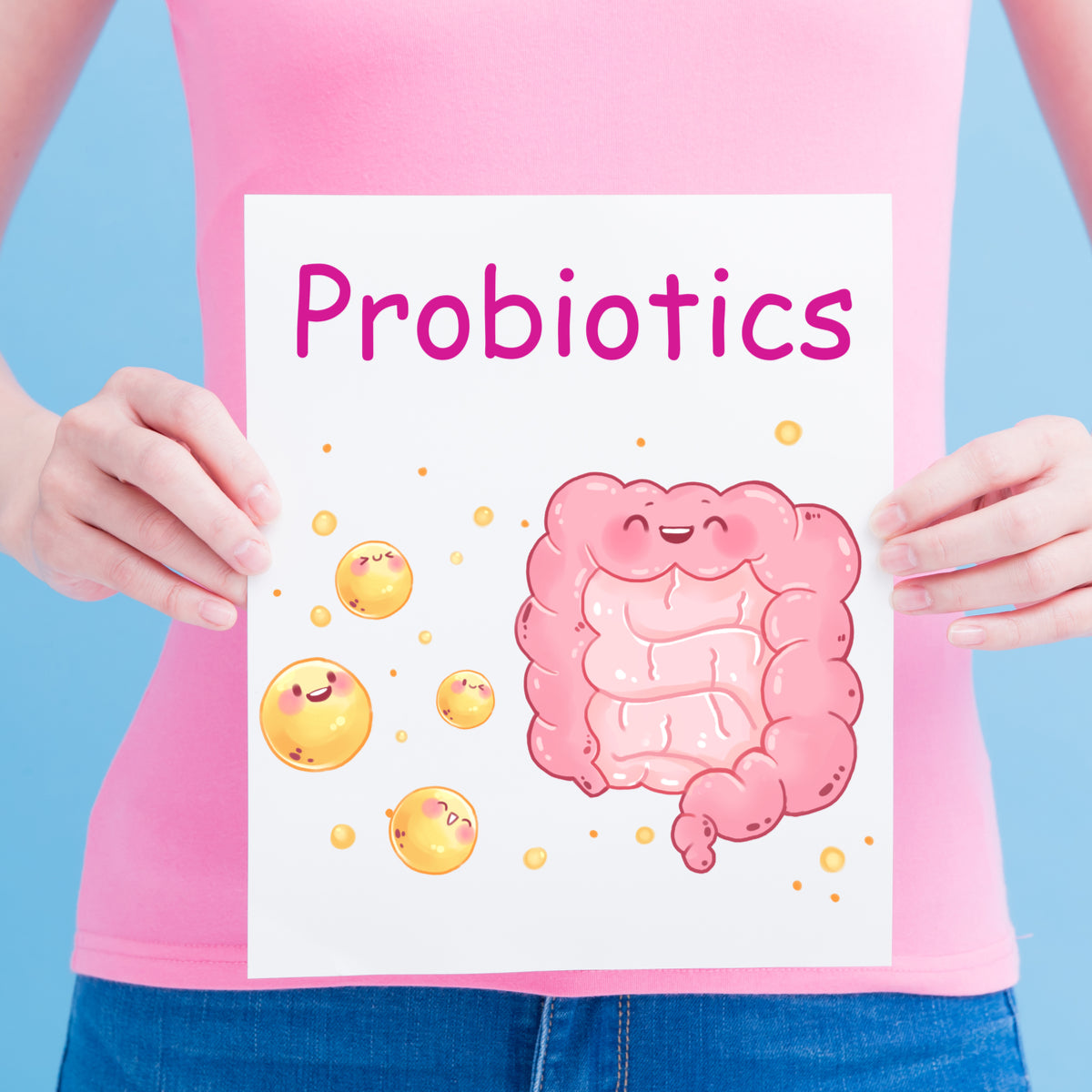Prebiotics and Probiotics: What Are They and How Do They Benefit You?
The food and nutrients you put into your body go towards your own health and energy, but your body is also supporting an entire ecosystem. There are trillions of organisms that live in your gut and elsewhere in your body, and many of them are beneficial.
You can help shift the balance towards the healthier side with probiotics (or live organisms), and prebiotics (which can feed healthy organisms). BariatricPal has Prebiotic and Probiotic supplements that are easy to take. Just talk to your healthcare provider about which products may be best for you before taking any dietary or nutritional supplement.
Probiotics: Healthy Gut Bacteria
Probiotics are bacteria that live in your gut and are healthy. They’re best known for their role in digestive and gut health. For example, they can help reduce diarrhea in people who are taking antibiotics, and can reduce symptoms in people with irritable bowel syndrome (IBS).
There are other benefits of probiotics. It’s been noticed that people who are obese have a different profile of gut bacteria than normal-weight individuals, which suggests that certain gut bacteria may affect metabolism and weight. There’s also a likely benefit of probiotics for general immune system strength, and research suggests that probiotics may support a normal mood. There’s even been research examining possible links between LDL cholesterol levels and gut profile.
There are many different types, or strains, of probiotics, including Lactobacillus, Bifidobacterium, Sacchaomyces, Enterococcus, and Bacillus.
Prebiotics: Food for Probiotics
If probiotics are live bacteria, what are they eating? It turns out that gut bacteria thrive on a group of compounds known as prebiotics. Prebiotics are often types of dietary fibers. You may not be able to digest them and use them for energy, but the bacteria in your gut can do so. Inulin, fructooligosaccarides, and beta-glucans are examples of prebiotics.
Food Sources of Prebiotics
Prebiotics are naturally present in certain plant-based foods. They include apples, asparagus, oats, onions, oaks, leeks, and garlic. Dandelion greens, bananas, flaxseed, and chicory root are also sources of prebiotics. Seaweed is another source.
Food Sources of Probiotics
Probiotics are in some cultured and fermented products. Yogurt with live and active cultures may be the most common source. Miso, sauerkraut, kimchi, and cheese may have some probiotics, depending on ingredients and processing methods.
When examining your diet for foods that are a good source of probiotics, it’s important to remember that processing can kill the microorganisms. That means that a food such as sourdough bread, while it may start off with live probiotic cultures, will not have any when you eat it because the cultures will be inactivated during cooking. The same is true for many types of pickled foods.
Weight Loss-Friendly Products with Prebiotics and Probiotics
If you want to support your beneficial gut-bacteria, what can you do? Prebiotic supplements are a great place to start, especially when considering that many foods don’t have very high amounts of prebiotics compared to the potential amount in supplements.
If you want to add more probiotics without worrying about which strains and how much is present in your foods, supplements can have a wider variety of probiotic strains and be easier to take.
BariatricPal Capsules with Prebiotic and Probiotics are available in different varieties, such as for Women or Gastrointestinal and Immune Health, and with different strains and amounts. They range in amount from 500 million CFU to 20 billion CFU. Bariatric Advantage has Chewable FloraVantage Probiotics in Grape Flavor, with 10 billion CFU.
You don’t have to take a capsule to get your prebiotics and probiotics, though.
BariatricPal Clean Whey Protein is packed with probiotics. A delicious and satisfying protein powder, it comes in Strawberry, Chocolate, and Vanilla.
You can also find probiotics in BariatricPal Sugar-Free Calcium Citrate Soft Chews. In addition to calcium, these chews have vitamin D and also probiotics. Plus, they come in several delicious flavors including Wild Grape, Orange Creamsicle, and Belgian Chocolate.
If you’re looking for a healthy treat that can improve your gut health, consider the gummies and marshmallows in the BariatricPal Store. Max Mallow Low Carb Keto Marshmallows by Know Brainer Foods are sources of prebiotics in the form of inulin from chicory, as well as collagen and medium-chain triglycerides. SmartSweets gummies, such as Peach Rings, Gummy Worms, Sourmelon Bites, Red Twists, and Sour Blast Buddies, are keto-friendly, fiber-rich sources.
Choosing the Right Prebiotics and Probiotics
It’s important to go to a trusted source for your prebiotic and probiotic supplements to ensure you’re purchasing quality products. It’s good to talk to your healthcare provider about how much to take, which strains are best, and whether you should take them at certain times of day and/or with certain foods.
You can also ask about side effects of prebiotics and probiotics, though they’re not likely to be severe or common. If you increase your intake of fiber, such as from inulin or beta-glucan, you might have a bit of an upset stomach for a few days while your body adjusts. It’s good to drink a lot of water during that time.
You might also want to consider the sources of your prebiotics and probiotics. In general, it may be a good idea to aim for a variety of sources. For prebiotics, that might include inulin, fructooligosaccharides, and beta-glucan. For probiotics, you might aim for supplements with multiple strains of probiotics instead of just one strain.
The BariatricPal Store is dedicated to supporting weight loss and overall health, and prebiotics and probiotics fit right in. From capsules to protein powders to candies, there’s sure to be a form that works for you. Ask your healthcare provider and be sure to browse all of the possibilities.
*The Food and Drug Administration has not evaluated these statements. BariatricPal products are not intended to diagnose, treat, cure or prevent any disease. Anyone with a medical condition should seek the advice of a licensed medical practitioner. Individual results may vary.





































































































